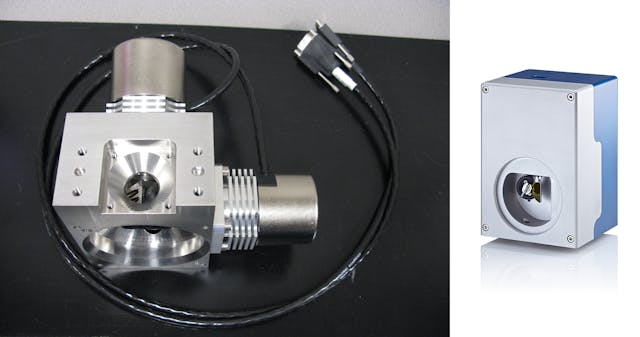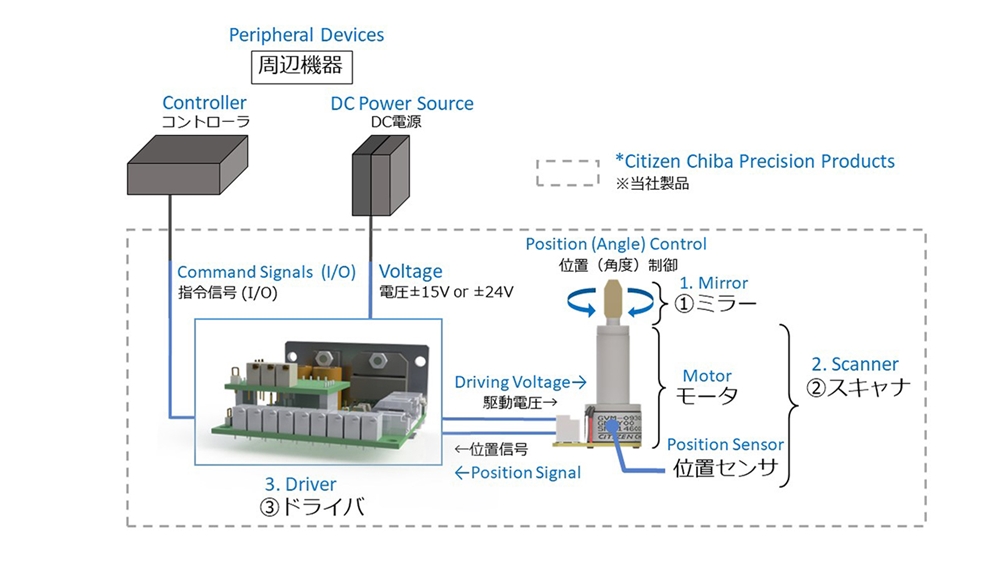How a Galvanometer Scanner Transforms Optical Applications for Scientists
How a Galvanometer Scanner Transforms Optical Applications for Scientists
Blog Article
How a Galvanometer Scanner Boosts Efficiency in Laser Scanning Technologies
The integration of galvanometer scanners in laser scanning modern technologies stands for an essential development in precision engineering. By facilitating exact and fast changes of laser beam of light instructions, these tools dramatically improve functional performance throughout various applications, from medical imaging to commercial engraving.
Recognizing Galvanometer Scanners
A galvanometer scanner is an advanced device that leverages electromagnetic principles to accomplish specific angular movement of mirrors or various other reflective surface areas. These scanners run via the communication of an electric existing and an electromagnetic field, enabling rapid and exact positioning. This technology is necessary in applications calling for high-speed scanning, such as laser engraving, optical interaction, and medical imaging.

Galvanometer scanners are typically identified by their rapid feedback times and high angular resolution, making them ideal for applications that require fast activities and accurate placing. Their reliability and efficiency make them a crucial part in contemporary laser scanning technologies, contributing significantly to improvements in different areas, consisting of production, healthcare, and telecoms.
System of Laser Light Beam Control

The control device relies upon closed-loop comments systems that constantly check the beam's placement. The signals from optical sensors give real-time information to the control system, enabling fast modifications to maintain precision. This is important in applications where even small variances can jeopardize the quality of the scan or engraving.
In addition, the galvanometer's feedback time is paramount; high-speed motors enable speedy motions, ensuring that the laser light beam can swiftly trace complicated patterns or execute elaborate procedures. The assimilation of digital signal handling even more enhances the responsiveness and accuracy of the galvanometer scanner. Generally, the device of laser beam control via galvanometer scanners exemplifies the combination of sophisticated design and innovation, producing high-performance end results in laser scanning applications.
Benefits of Boosted Accuracy
Boosted accuracy in laser scanning technologies provides substantial advantages throughout different applications, from industrial production to clinical procedures. The assimilation of galvanometer scanners enables extremely exact beam of light positioning, which is crucial for tasks requiring meticulous information. This enhanced accuracy makes certain that the laser can target certain areas with minimal deviation, causing exceptional quality outcomes.
In commercial contexts, accurate laser scanning results in improved item consistency and minimized material waste. Parts made with high precision are much less most likely to need rework, therefore enhancing performance and reducing operational costs. In medical applications, the precision of laser treatments can substantially affect client outcomes. In laser surgical treatment, exact targeting reduces damage to surrounding tissues, leading to quicker recuperation times and less problems.
In addition, enhanced precision helps with advanced applications such as 3D imaging and microfabrication, where also minute errors can cause significant mistakes. By supplying repeatable and trustworthy laser positioning, galvanometer scanners add to the total efficiency and performance of laser systems. In recap, the benefits of improved precision not just enhance operational efficiency but likewise raise the standards of quality and safety and security in various markets.
Applications in Different Industries
The convenience of galvanometer scanners in laser scanning modern technologies extends across numerous markets, each taking advantage of the accuracy they offer. In the medical field, these scanners are critical in applications such as laser surgery and imaging, enabling extremely precise targeting of cells while reducing damage to bordering locations - galvanometer scanner. Their rapid reaction and great resolution are critical in creating top notch results
In websites the manufacturing field, galvanometer scanners improve processes like laser engraving and cutting. Their capacity to rapidly route laser light beams onto surface areas allows reliable assembly line, enhancing rate and precision in creating intricate designs or parts.
The auto industry click this additionally takes advantage of on galvanometer technology for quality control and inspections (galvanometer scanner). By using high-speed scanning, makers can identify defects in assemblies or products, making certain that items meet rigid standards
Furthermore, in the home entertainment market, galvanometer scanners are employed in laser light programs and displays, supplying vibrant visual experiences with specific control over laser movements.
Future Fads in Laser Scanning
Arising innovations are positioned to change the landscape of laser scanning, with galvanometer scanners at the center of this transformation. As industries increasingly require precision and performance, the development of galvanometer modern technology will certainly drive significant innovations in laser scanning applications.
Future patterns show a growing integration of expert system and artificial intelligence algorithms, which will certainly enhance information refining capabilities and automate decision-making in real-time. This harmony will permit more innovative evaluation find out of checked data, leading to boosted accuracy in applications such as 3D modeling and autonomous navigating.
Additionally, the miniaturization of parts and the growth of sophisticated products will certainly add to lighter, much more portable laser scanning systems. This portability will certainly broaden the reach of laser scanning technologies into formerly hard to reach environments, such as remote terrain and elaborate architectural areas.
The surge of enhanced truth (AR) and digital truth (VR) applications will likewise form the future of laser scanning. By integrating galvanometer scanners with AR and virtual reality, users will benefit from immersive experiences that boost visualization and project planning.
Verdict
In final thought, galvanometer scanners play a critical function in optimizing laser scanning technologies via their specific control of beam of light direction and rapid angular adjustments. The integration of sophisticated comments systems and optical sensors considerably enhances functional rate and accuracy, bring about improved outcomes in applications such as laser engraving and clinical imaging. As sectors significantly take on these innovations, the recurring innovations in galvanometer scanner designs are anticipated to further elevate efficiency standards and widen application possibilities.
The integration of galvanometer scanners in laser scanning technologies represents a crucial advancement in precision design. Overall, the system of laser beam of light control with galvanometer scanners exemplifies the blend of sophisticated design and technology, producing high-performance end results in laser scanning applications.
By supplying reputable and repeatable laser positioning, galvanometer scanners add to the overall performance and effectiveness of laser systems.The flexibility of galvanometer scanners in laser scanning modern technologies extends throughout numerous markets, each profiting from the accuracy they offer.In final thought, galvanometer scanners play a critical duty in optimizing laser scanning modern technologies through their accurate control of beam instructions and rapid angular modifications.
Report this page